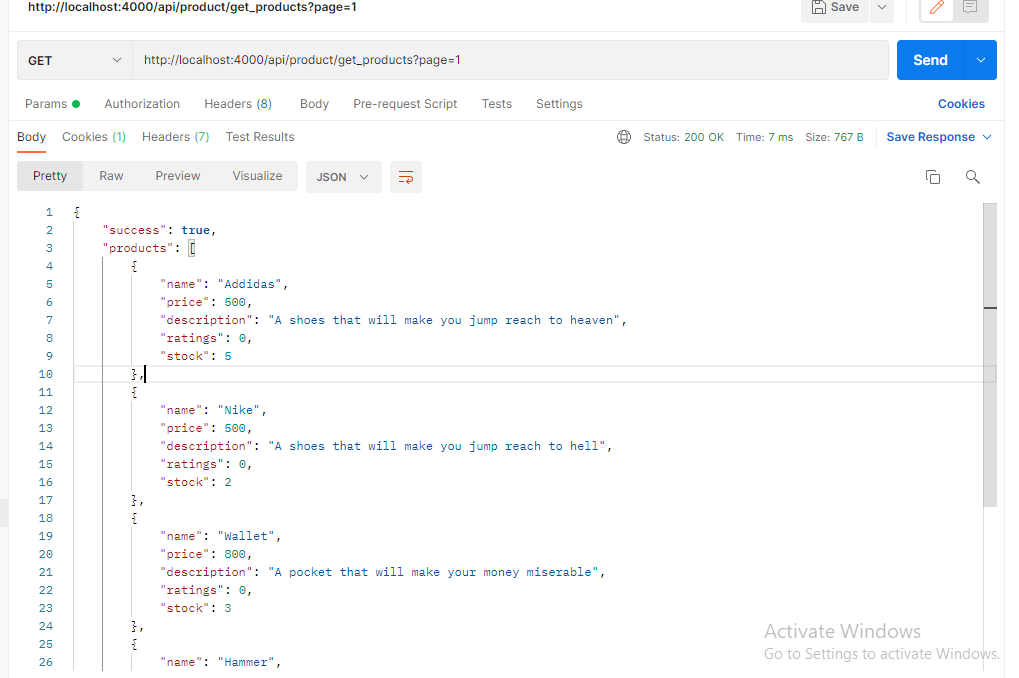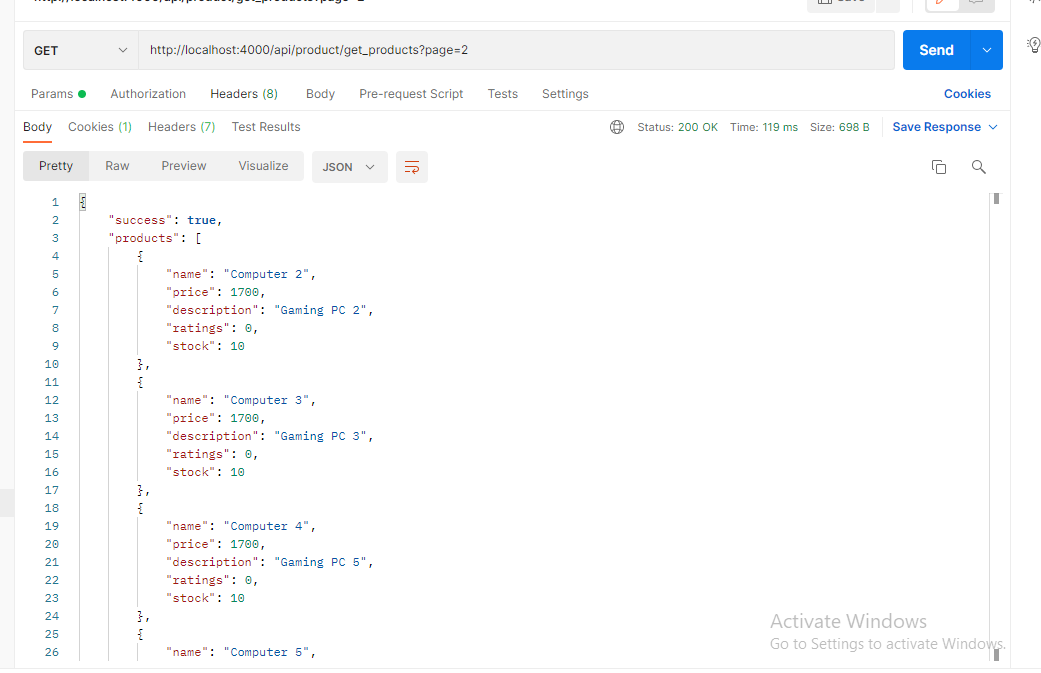-
-
Save andremsantos/33781f39444efddbf619514104c55f7d to your computer and use it in GitHub Desktop.
| module.exports = function(dbConfig) { | |
| var knex = require('knex')(dbConfig); | |
| var KnexQueryBuilder = require('knex/lib/query/builder'); | |
| KnexQueryBuilder.prototype.paginate = function (per_page, current_page) { | |
| var pagination = {}; | |
| var per_page = per_page || 10; | |
| var page = current_page || 1; | |
| if (page < 1) page = 1; | |
| var offset = (page - 1) * per_page; | |
| return Promise.all([ | |
| this.clone().count('* as count').first(), | |
| this.offset(offset).limit(per_page) | |
| ]) | |
| .then(([total, rows]) => { | |
| var count = total.count; | |
| var rows = rows; | |
| pagination.total = count; | |
| pagination.per_page = per_page; | |
| pagination.offset = offset; | |
| pagination.to = offset + rows.length; | |
| pagination.last_page = Math.ceil(count / per_page); | |
| pagination.current_page = page; | |
| pagination.from = offset; | |
| pagination.data = rows; | |
| return pagination; | |
| }); | |
| }; | |
| knex.queryBuilder = function () { | |
| return new KnexQueryBuilder(knex.client); | |
| }; | |
| return knex; | |
| } |
This didn't exactly work for me as it's injecting the count into the actual query. I ended up with something that references the top level knex function .. which I'd like to be able to reference in a more relational fashion, so if you see a way to do that please comment.
(didn't format it in the same manner, but you'll see the idea)
import KnexQueryBuilder from 'knex/lib/query/builder'
import pg from 'pg'
const config = { ... } // your config
const knexConn = require('knex')(config)
KnexQueryBuilder.prototype.paginate = function (per_page, current_page) {
const page = Math.max(current_page || 1, 1)
const offset = (page - 1) * per_page
const clone = this.clone()
return Promise.all([
this.offset(offset).limit(per_page),
knexConn.count('*').from(clone.as('t1')),
])
.then(([rows, total]) => {
const count = parseInt(total.length > 0 ? total[0].count : 0)
return {
total: parseInt(count),
per_page: per_page,
offset: offset,
to: offset + rows.length,
last_page: Math.ceil(count / per_page),
current_page: page,
from: offset,
data: rows,
}
})
}
knexConn.queryBuilder = function () {
return new KnexQueryBuilder(knexConn.client)
}
export const knex = knexConn
}
You can use it doing
knex('books').select('id', 'title').orderBy('title').paginate(10, 1)
Why do we need to re-instantiate knex's querybuilder? (i.e. this code below)
knex.queryBuilder = function () {
return new KnexQueryBuilder(knex.client);
};
Doesn't changing the prototype for the QueryBuilder affect the existing instance?
And it seems to be working fine without this last part!
Thanks, everyone here is my own implementation
/*import your knex config*/
const db = require('../data/dbConfig');
/*create a function for the database model for the table you want to paginate
in this case our table name is `sampleTable`
here `perPage` is the number of data we want per page and `currentPage` specifies the page number*/
const functionName = async (perPage, currentPage) => {
const pagination = {};
const limitPerPage = perPage || 10;
const page = Math.max(currentPage || 1, 1);
const offset = (page - 1) * perPage;
return Promise.all([
await db('sampleTable')
.clone()
.count('* as count')
.first(),
await db('sampleTable')
.limit(limitPerPage)
.offset(offset)
]).then(([total, rows]) => {
const { count } = total;
pagination.total = parseInt(count, 10);
pagination.perPage = perPage;
pagination.offset = offset;
pagination.to = offset + rows.length;
pagination.last_page = Math.ceil(count / perPage);
pagination.currentPage = page;
pagination.from = offset;
pagination.data = rows;
return pagination.data;
});
};
No need to make 2 requests, this thing could work:
db('sampleTable')
.limit(perPage)
.offset(offset)
.select(['*'])
.select(knex.raw('count(id) OVER() as total'));
Hi,
I'm try this with knex 0.20.14 and i got error:
TypeError: Cannot assign to read only property 'queryBuilder'
on the line:
knex.queryBuilder = function queryBuilder()
I changed this to:
knex.context.queryBuilder = function queryBuilder()
and now it works.
Place it inside whenever folder name u want, in my case, under util folder
util / search.js
class Search {
constructor(query, queryString) {
this.query = query;
this.queryString = queryString;
this.tableName = this.query.and._single.table;
}
pagination(resPerPage) {
let { queryString, query, tableName } = this;
let { page } = queryString;
if (page < 1) page = 1;
let offset = (page - 1) * resPerPage;
query
.select("name", "price", "description", "ratings", "stock")
.from(`${tableName}`)
.offset(offset)
.limit(resPerPage);
return this;
}
}
module.exports = SearchQuery;
on the other part:
// under the controller folder, create a file. "in my case, it is product.js"
const query = require("../config/database/database"); // this is came from knex configuration
const SearchQuery = require("../utils/searchQuery");
exports.getProducts = catchAsyncErrors(async (req, res, next) => {
const resPerPage = 5;
const search = new SearchQuery(query("products"), req.query)
.pagination(resPerPage);
const products = await search.query;
res.status(200).json({
success: true,
products,
});
});


Hi, how to use this function?